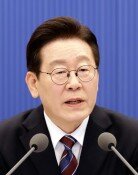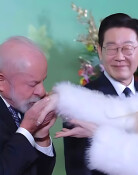[Opinion] The Third Wave of Feminism
[Opinion] The Third Wave of Feminism
Posted June. 22, 2005 06:00,
Womens studies are giving misunderstandings about marriage and sex to female college students. This astonishing announcement was made not by a man but by a feminist group. A U.S. liberal womens organization named the Independent Womens Forum (IWF) published a report earlier this year after analyzing materials for womens studies and concluded in the report that those materials are designed for female students to believe that having a career is the only path to success for women and that marriage and family is a patriarchal bind. Some may call this a diversification of feminism.
There Are Also Trends in Feminism-
In around the 20th Century, there was the first wave of the feminism movement in which women struggled for womens suffrage. In the second wave, in the 1960s and 70s, the feminism movement boiled down to a battle for equality between men and women in which women desired to be free from all kinds of pressure. In the early 1980s, theories in womens study focused on womanly values such as cooperation, intuition, and intimacy, emerged. Owing to those waves, womens mindsets and positions in society were improved, but feminism has also become a bit radical. For example, it is said that pornography is a societal weapon to make women obey. Many professors who teach womens studies these days were educated during that time.
In the 1990s, liberal feminists in the U.S. argued, Why are men enemies when women like them? In Korea, the IWF has not been introduced much, The IWF thinks choices and responsibilities of individuals and the market economy are important, and regard the existing feminism as the left. It is also a matter of course that other people consider the group as the right. Some voices that criticize the western-centered views are also heard in feminism. Now, the third wave of feminism, which features various views according to races, nationalities, classes, religions, and sexual orientations in a variety of sectors such as politics, economy, environment, war, and culture, are seeming to appear.
The Ninth International Interdisciplinary Congress on Women currently held in Seoul is also dealing various themes such as peace, war, globalization, and womens leadership. The Korean Association of Womens Studies and Ewha Womens University are highly praised since they not only introduced womens studies for the first time in Korea but also played a major role in establishing an institutional system for gender equality. Korea ranks 54th out of 58 nations when it comes to achievement of gender equality. Women, individuals, and feminism in Korea still have a long way to go regardless of which wave of feminism they choose.
Kim Sun-duk, Editorial Writer, yuri@donga.com







